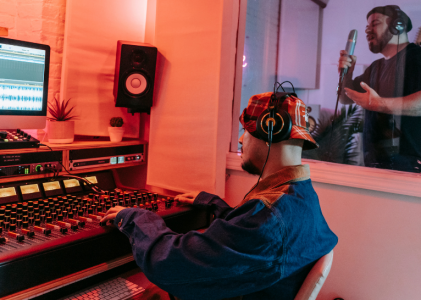Recording studios are associated with expensive, high-tech gadgets that only professionals can use to create music. These studios are often pictured as being in the country, where there is peace and quiet that allows the artist to express his natural talents.
You will find a wider range of studios than you would expect. Each has a unique design to accommodate specific types of projects.
A drama and speech studio, for example, will be focused on the best possible acoustics. This is because dramatic recording projects require this to be the most important consideration.
These rooms are typically designed and built around the studio’s specific recording requirements. These requirements will first be determined, then the building will either be built or fitted out accordingly.
Studio design is very important and there are many things to consider. If you are considering building a recording studio, it is a smart idea to hire a specialist design firm.
All aspects of the building’s architecture, interior design and soundproofing, as well as acoustics, should be considered.
You can break down sound quality into two distinct aspects: acoustics and sound-proofing.

It is now possible to create professional-sounding recordings with relatively cheap computer-based equipment. This equipment can be distinguished from studio recordings that cost more. Even a home studio can produce great results.
Recording rooms that are smaller in size are used for interviews, voiceovers, and drama. Music recording, choirs and string sections, as well as ensembles, are all done in larger rooms.
Technology has advanced so much that it is now possible to perform many types of production in one location. In contrast, recording sessions used to take place at various studios and then brought together to create the final product.
You can adapt recording studios to fit in most buildings depending on their intended use. Local artists will often use studios located in cities. They are usually smaller.
Larger recording studio complexes are usually located outside of the city centre and generally owned by private individuals. Large studio complexes can provide privacy for recording artists, and are usually hired out to artists for the duration of the project.
Commercial studio complexes follow the model of multi-screen cinemas and offer a variety of recording facilities under one roof.
Solo artists and bands no longer need to pay multiple locations for their finished product.
Commercial studios with larger budgets may offer back-drop facilities, which can make it appear as though the film was shot on location.
Town planning restrictions, noise levels and building access often restrict smaller studios. Local residents may also object to what they offer.
Major artists often book studios outside residential areas.


